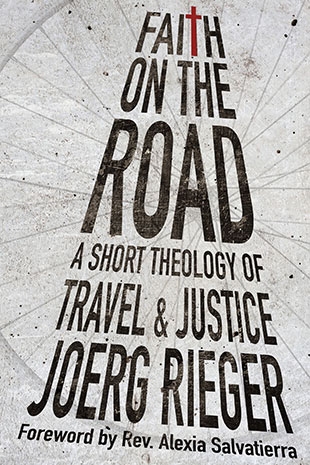"A new type of vagabond has featured prominently in American literature of the twentieth century, and these experiences provide some important insights for us as well. Vagabonding in the America after the 1940s often attracted young people who sought freedom and older people tired of tourist schemes, where money and status guaranteed mindless comfort and safety. Most of these vagabonds were not without means, but they were willing to renounce the privilege that came with money. Those who learn that one can travel in simpler ways are often the ones who can also come to understand what most people never realize: namely that it is possible to live one's life in alternative fashion and in simpler ways.
"Perhaps the most famous vagabond in the United States is Jack Kerouac, whose book On the Road has become an icon. Yet the vagabond story told by this Beat poet is not the story of a slacker, as is often assumed. Sal, the hero of Kerouac's book, is willing to work and contribute to society. Sal is not willing, however, to work for work's sake. The distinction he draws is between authentic work and the work people do in order to become consumers of stuff. Sal, according to literary critic John Leland, 'rejects upward mobility as a plot to make men do pointless things, turning them into parodies of the American Dream.' What enables Sal to work and to write is moving down the ladder of success rather than up. Vagabonding — getting out from under the status quo, being on the road — helps him accomplish this goal of moving down.
"Like the pilgrims of old, vagabonding Sal steps out of the religious, social and economic status quo quite deliberately. Kerouac has him say these words: 'The only people for me are the mad ones, the ones who are mad to live, mad to talk, mad to be saved, desirous of everything at the same time, the ones who never yawn or say a commonplace thing, but burn, burn like fabulous yellow roman candles exploding like spiders across the stars and in the middle you see the blue centerlight and everybody goes 'Awww! '
"Sal's trips are ultimately about these mad but at the same time fully alive people. Vagabonding helps him draw a line between the mad people and those who have bought into the status quo to such a degree that all alternatives have disappeared: 'In Davenport, Iowa, somehow all the cars were farmer-cars, and once in a while a tourist car, which is worse, with old men driving and their wives pointing out the sights or poring over maps, and sitting back looking at everything with suspicious faces.' Vagabonds experience the world in ways tourists never will. This holds true for the sacred as well: it escapes those who seek to control it, to be experienced by those who are willing to embrace what is different."
